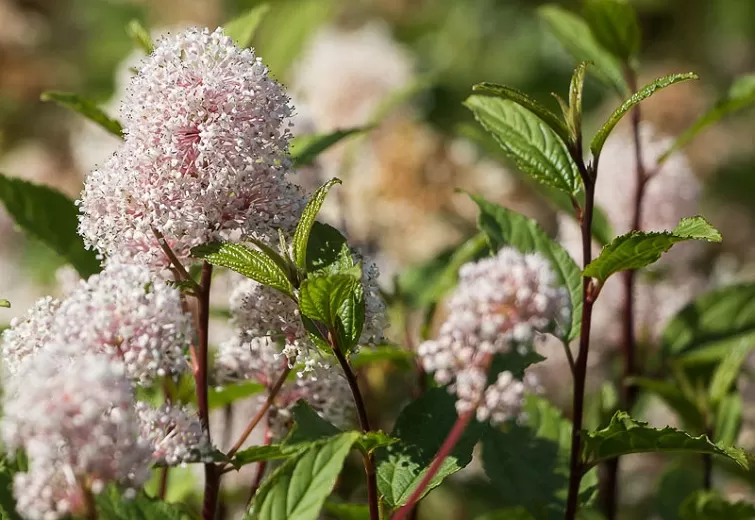Health Benefits of Black Raspberry
Benefits of black raspberry ae quite enormous. Black raspberry is a plant known for its edible fruit, which is commonly consumed as food. In addition to being enjoyed as a berry, both the fruit and the leaves of the black raspberry plant are used in traditional medicine.
People have used black raspberry to address conditions like stomach pain, bleeding, and even as a preventative measure against cancer.
Black and red raspberries, both members of the Rubus family, share similar nutritional profiles. Their contents of calories, proteins, fiber, and vitamins are virtually identical. However, black raspberries stand out due to a few key differences.
For instance, they contain 10 times more anthocyanins, nearly twice the amount of ellagic acid, and boast three times the antioxidant capacity compared to red raspberries, as measured by their oxygen radical absorption capacity (ORAC), which gauges their ability to neutralize harmful free radicals.
Although black raspberries and blackberries look quite similar, one noticeable difference lies in their core. Raspberries, whether black or red, have a hollow center once removed from the vine, while blackberries retain a non-hollow white or green core.
Additionally, black raspberries contain double the anthocyanins and nearly triple the antioxidant levels of blackberries.
Blackberries also offer unique benefits, particularly in their high vitamin K content, which is nearly three times higher than that found in both red and black raspberries (refer to Table 1 for a detailed comparison).
Antioxidants play a crucial role in combating diseases like cancer, heart disease, and age-related conditions. Anthocyanins, the compounds responsible for the deep purple color of black raspberries, act as powerful antioxidants that protect cells from oxidative stress.
Beyond their antioxidant properties, black raspberries exhibit chemopreventive, anti-inflammatory, and neuroprotective effects. Studies suggest that they may lower the risk of breast and colorectal cancers, as well as cardiovascular diseases.
Recent scientific research has revealed even more impressive health benefits of black raspberries. They are highly effective in combating oral cancers, preventing diabetes, reducing blood pressure, managing weight, easing skin allergies, and even reducing bone loss.
| Differences Between Black Raspberries, Blackberries and Red Raspberries | |||
| Factors | Black Raspberries | Blackberries | Red Raspberries |
| Amount | 1 cup raw | 1 cup raw | 1 cup raw |
| Calories | 64 | 62 | 64 |
| Protein | 1.5 g | 2 g | 1.5 g |
| Fat | 0.8 g | 0.7 g | 0.8 g |
| Carbs | 14.7 g | 13.8 g | 14.7 g |
| Fiber | 8 g, 29% of the Reference Daily Intake (RDI) | 7.6 g, 27% of RDI | 8 g, 29% of RDI |
| Vitamin C | 32.2 mg, 36% of RDI | 30.2 mg, 34% of RDI | 32.2 mg, 36% of RDI |
| Vitamin K | 9.6 mcg, 12% of RDI | 28.5 mcg, 35% of RDI | 9.6 mcg, 12% of RDI |
| Vitamin E | 1.1 g, 7% of RDI | 1.7 g, 11% of RDI | 1.1 g, 7% of RDI |
| Taste | Sweetest | Less sweet | Sweet |
| Anthocyanin | 214-589 mg/100g | 109-155 mg/100g | 20-65 mg/100g |
| Ellagic Acid | 5.37 mg/g dry weight | 5.83 mg/g dry weight | 3.39 mg/g dry weight |
| ORAC | 77 umole trolox equivalent per gram dry weight (umole TE/g) | 28 umole TE/g | 24 umole TE/g |
Source: Oregon State University, Berry Health Benefits Network, Fact Sheets
Typical Composition and Nutrition Values of Black Raspberries
(based on major types of packs)
| Amount in 100g | IQF | Puree |
| Brix ( Brix) | 9.8-11.8 | 10.5-18.0 |
| Calories (Kcal) | 72.54 | 60.11 |
| Calories from fat (Kcal) | 0.14 | 0.63 |
| Nutrients | ||
| Lipids (g) | 0.02 | 0.07 |
| Total Carbohydrates (g) | 16.75 | 14.12 |
| Dietary Fiber (g) | 1.68 | 2.17 |
| Sugar (g) | 5.15 | 4.44 |
| Protein (g) | 1.35 | 0.75 |
| Vitamin A (IU) | 38.00 | <30.00 |
| Vitamin C (mg) | 2.38 | 1.47 |
| Calcium (mg) | 32.00 | 21.00 |
| Iron (mg) | 1.35 | 031 |
| Sodium (mg) | .0.51 | 1.30 |
Source:Oregon Raspberry & Blackberry Commission
Benefits of Black Raspberry
Fights Oral Cancers
Oral squamous cell carcinomas, commonly found in the mouth, pharynx, and esophagus, have shown responsiveness to black raspberry interventions.
In a mouse study where oral cancer was induced by tobacco smoke toxins, mice fed a diet containing 5% black raspberry experienced significantly less DNA damage in their oral cavities. The incidence of oral tumors dropped from 70% in the control group to 46.7% in the black raspberry-treated group.
In a clinical trial involving 30 patients with oral cancer who were scheduled for surgery, the daily use of a dissolvable lozenge containing freeze-dried black raspberry powder over a two-week period led to a notable reduction in anti-apoptotic and pro-inflammatory biomarkers, both linked to oral cancer.
Another study, conducted on hamsters with carcinogen-induced oral cancer, revealed that applying a freeze-dried black raspberry solution topically over a 12-week period reduced squamous cancer cell growth by 41%, tumor formation by 37%, and cell proliferation by almost 7%, highlighting the cancer-preventive potential of black raspberries.
In a study involving patients with Barrett’s esophagus, a condition linked to an increased risk of esophageal cancer, participants were given 32 grams or 45 grams of black raspberries for six months.
Results showed a significant reduction in lipid peroxidation (a marker of oxidative stress) and an increase in detoxification markers (GST-pi levels) in 55% of the participants, suggesting a protective role against esophageal cancer.
Additionally, in rat models with chemically induced esophageal cancer, treatments using freeze-dried black raspberries, anthocyanins, or protocatechuic acid were found to suppress tumor growth. These interventions reduced both proinflammatory and anti-inflammatory cytokines while promoting the infiltration of immune cells into the tumor tissue.
Another mouse study of oral cancer demonstrated that black raspberry extract not only inhibited the cancer-causing effects of carcinogens but also repaired DNA lesions, showcasing strong cancer prevention capabilities.
Prevents Diabetes
Black raspberries have also shown promise in diabetes prevention. In a 12-week trial involving 45 prediabetic patients, participants were administered either a placebo or black raspberry extract in two doses—900 mg or 1,800 mg daily.
Both black raspberry groups demonstrated dose-dependent improvements in blood glucose control, lipid profiles, and reduced vascular inflammation.
In another study with obese diabetic mice, black raspberry seed oil, constituting either 8% or 16% of the mice’s total diet, was compared to a control group fed soybean oil. Both groups that consumed black raspberry seed oil showed significantly stronger anti-inflammatory effects.
Moreover, a review of three large cohort studies, including a total of 200,894 participants and 12,611 Type 2 diabetes cases, revealed that dietary intake of anthocyanins and berries was associated with a 15% and 18% reduction in the risk of developing Type 2 diabetes, respectively.
Similarly, a meta-analysis of 23 studies confirmed that regular berry consumption is highly effective in lowering the risk of Type 2 diabetes.
Lowers Blood Pressure
Black raspberries have been shown to significantly lower blood pressure. In a study involving 45 patients with prehypertension, those who took black raspberry powder capsules for eight weeks experienced notable reductions in both 24-hour and nighttime systolic blood pressure compared to those who received a placebo.
The dried powder form of black raspberries proved particularly effective in regulating blood pressure.
Additionally, a cross-sectional study involving nearly 1,900 women, aged 18 to 75 years, found that higher consumption of anthocyanins, which are abundantly present in black raspberries, was associated with significantly lower systolic blood pressure. This suggests that dietary anthocyanins play a beneficial role in promoting cardiovascular health.
Reduces Obesity
Black raspberries may also be effective in combating obesity. In an eight-week study using an in vitro model of obese mice induced by a high-fat diet, black raspberry supplementation resulted in dose-dependent decreases in body weight, adipose tissue mass, serum glucose, total cholesterol, triglycerides, and low-density lipoprotein levels.
The study found that daily doses of black raspberry at 10 mg and 50 mg per kilogram significantly improved these markers, suggesting that black raspberries may support weight loss and overall metabolic health.
Similarly, a polyphenol-enriched herbal complex containing key compounds such as ellagic acid and vitexin was shown to reduce obesity and related metabolic dysfunction in a similar high-fat diet-induced obese mouse model.
When black raspberry extract was compared to rosuvastatin (a cholesterol-lowering drug) in mice with hyperlipidemia, it demonstrated an ability to normalize immune functions and reduce serum tumor necrosis factor and total cholesterol levels.
This suggests that black raspberries may serve as a natural alternative to pharmaceutical treatments for obesity-related conditions.
Stops Osteoporosis
Black raspberries have also been found to protect against osteoporosis, especially in individuals at higher risk for bone loss.
In a rat model of prostate disease, which is associated with an increased risk of osteoporosis, administration of black raspberry extract effectively prevented bone degradation by influencing the activation of bone-forming osteoblasts and bone-resorbing osteoclasts. This suggests that black raspberry may help to maintain healthy bone density.
In another study using an ovariectomized rat model (mimicking postmenopausal osteoporosis), black raspberry vinegar was tested against alendronate, a standard drug used to treat osteoporosis.
Both low and high doses of the black raspberry vinegar showed positive effects on estrogen regulation and bone health, comparable to the drug treatment. As a result, black raspberry vinegar is recommended as a natural alternative for preventing osteoporosis, particularly in postmenopausal women.
Inhibits Skin Allergies
Black raspberries have also shown potential in treating skin allergies. In an in vivo mouse model of induced contact hypersensitivity, dietary supplementation with black raspberries or their anthocyanin components led to significant improvements in symptoms such as swelling, redness, itching, and rashes associated with skin inflammation.
These findings suggest that black raspberry-based treatments could be safer alternatives to conventional steroid-based therapies for conditions like dermatitis.
Further studies into black raspberry extracts demonstrated their anti-inflammatory properties. Key anthocyanin components were found to suppress the activity of inducible nitric oxide synthase, tumor necrosis factor, and interleukin, all of which are involved in inflammatory processes.
This makes black raspberry extracts promising candidates for managing inflammatory diseases.
Beneficial Health Properties
Black raspberries possess a range of impressive health benefits, including anti-inflammatory, antioxidant, chemopreventive, and anticarcinogenic properties. These attributes make them a powerful natural remedy for various health conditions.
Their antioxidant and cancer-fighting abilities enable black raspberries to combat multiple types of cancer, including oral and esophageal cancers. They also help regulate blood pressure, promoting cardiovascular health, and are effective in managing weight by reducing body fat and improving metabolic markers.
Furthermore, black raspberries strengthen bones, making them useful in preventing osteoporosis, particularly in high-risk individuals such as postmenopausal women.
The anti-inflammatory properties of black raspberries also contribute to improved skin health, providing relief from allergic reactions and inflammation-related skin conditions.
In addition, they play a role in preventing diabetes by improving glucose and lipid control, making them beneficial for both prediabetic and diabetic individuals.
Summary
How It Works
Black raspberry contains bioactive compounds that may offer protective effects against cancer. These compounds are thought to prevent cancer by safeguarding DNA from harmful mutations and by inhibiting the formation of blood vessels that supply tumors, essentially starving the tumors of necessary nutrients.
Uses
At present, the effectiveness of black raspberry for medicinal uses is still under investigation. Its potential uses include:
- Stomach pain
- Bleeding
- Cancer prevention
- Other health conditions
However, more research is needed to determine how effective black raspberry is in treating these conditions.
Side Effects
Black raspberry is generally considered safe when consumed as a food. However, there isn’t enough reliable information to confirm its safety when taken in larger medicinal doses. Caution should be exercised when using it in medicinal amounts, as the safety profile remains unclear.
Precautions
- Pregnancy and breastfeeding: Black raspberry is safe for pregnant and breastfeeding women when consumed in typical food amounts. However, medicinal doses should be avoided until more information becomes available.
Dosing
The appropriate dosage of black raspberry for medicinal purposes depends on various factors, such as age, health status, and specific conditions being treated. Currently, there is not enough scientific data to establish standardized dosage guidelines.
Since natural products can have variable effects, it is crucial to follow product label instructions and consult a healthcare professional, such as a pharmacist or physician, before using black raspberry in medicinal amounts.
Benefits of Eating Pomegranate
Foods to help with Constipation

A graduate of Computer Science and Information Management Technology. Diploma – Caregiving, Certificates – Dementia and Diabetes Awareness and Management. A researcher, blogger, songwriter, singer and acoustic guitarist. Born in an environment where natural talents such as healing are imparted at our natural birth. This natural talents of healing is the result of our genetic inheritance and the training from family environment.























